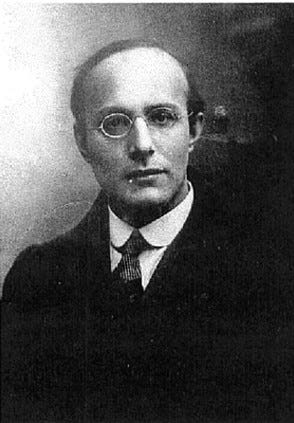A Smidge of Economic Theory and History
In his acclaimed study of the Industrial Revolution, The Great Transformation (1944), economic historian and social philosopher, Karl Polanyi (1886-1964), famously argues that a deep flaw in the practice of capitalism is using as commodities three things that should not be bought and sold on the market: land, workers, money.
Reducing nature to an asset and downgrading people to commercial items (items best acquired, by the way, at bargain-basement prices) leads to, in Polanyi’s words, “neighborhoods and landscapes defiled, rivers polluted, military safety jeopardized, the power to produce food and raw materials destroyed.” Not surprisingly, within this degraded civil and physical environment, “human beings would perish from the effects of social exposure; they would die as victims of acute social dislocation through vice, perversion, crime and starvation” (73).
Well, here we are folks. Living in the very hellscape Polanyi describes and predicts. A hellscape otherwise known as neoliberalism.
I’ve recently written at length about neoliberalism (likely at too great a length—but neoliberalism really pisses me off). In my series of posts, “The Regime Under the Microscope,” I take an extended look at this pernicious economic practice. A practice that’s at the heart of our current Regime. A practice that’s been marauding the planet since about 1980. (See, if you like, “Neoliberalism Introduced”; “Into the Neoliberal Weeds”; “The Neoliberal Workplace”; “Neoliberal Financial Markets”; “Neoliberal Ideology and Bullshit”. All fun reads, to be sure.) No longer mid 20th-century economic theory but now early 21st-century economic fact, inadequately regulated capitalism (i.e. neoliberalism) has led to the environmental disaster of climate change and the impoverishing of the great majority of the world population.
In America specifically, neoliberal economic policies have produced the brutalization of our working class and the shrinking of our middle class. (Oh, and a lot of useless billionaires as well. But we’ll get to them in a minute.)
Again, this is all exactly as Polanyi warned in 1944.
Yet Polanyi likewise is at pains to discuss both the “good freedoms” and the “bad freedoms” brought to us by the market economy of capitalism. Like Marx, Polanyi is not a hater of capitalism; he’s an advocate of the market economy being put to use for the common good.
I know. String him up. What an asshole.
Among the bad freedoms Polanyi lists: “the freedom to exploit one’s fellows, or the freedom to make inordinate gains without commensurable service to the community, the freedom to keep technological inventions from being used for public benefit, or the freedom to profit from public calamities secretly engineered for private advantage.” Among the good freedoms he names: “Freedom of conscience, freedom of speech, freedom of meeting, freedom of association, freedom to choose one’s own job.”
All of these sound like apt descriptions of 2024 America.
As for how to form an equitable society where market prosperity is not destructively hoarded by an opulent few, Polanyi recommends enacting governmental regulations and safeguards that will promote these good freedoms while minimizing those bad freedoms. In this way, we can achieve, “Freedom not as an appurtenance of privilege, tainted at the source, but as a prescriptive right extending far beyond the narrow confines of the political sphere into the intimate organization of society itself.”
If we don’t enact such governmental protections, if an unfettered market economy is allowed to pursue the bad freedoms of capitalism, we will suffer a social order that brings about “the fullness of freedom for those whose income, leisure and security need no enhancing, and a mere pittance of liberty for the people, who may in vain attempt to make use of their democratic rights to gain shelter from the power of the owners of property” (256-258, emphasis added).
Polanyi’s characterization of a society dominated by the bad freedoms of capitalism strikes me as a painfully accurate description of 2024 America. We struggle within a current social order that allows these bad freedoms to run wild. Because of this situation, we have become a people holding, as Polanyi puts it, “a mere pittance of liberty” who must contend constantly against the nearly overwhelming “power of the owners of property” to acquire even the most basic economic fair shake.
The key questions facing us, then, are these.
Will we use our democratic rights “in vain...to gain shelter” against these hoarders of wealth? Or will we use our democratic rights to restructure our status quo into a system promoting only the good freedoms of capitalism?
With this smidge of theory and history in hand, let’s turn now to the bedlam of our Presidential campaign.
Billionaires and Their Useful Bigots
The one thing that the wealthy—and especially the super-wealthy—in America can’t talk about or overly openly pursue is how, to use Polanyi’s phrase, “the fullness of freedom for those whose income, leisure and security need no enhancing” is being, well, enhanced. And enhanced by a lot. Via soaring corporate profits, lucrative shareholder dividends, and lavish Republican tax cuts, wealthy folk in America are making out like bandits and getting away with murder. And they have been for decades.
As for the rest of us, well, even if a lot of people don’t fully comprehend this state of affairs, we certainly all feel its effect. If you’re not flush with cash in America, you’re scrambling in some way, shape, or form. If lucky, you’re managing to keep your head just above water. If unlucky, no matter how furiously you tread, you’re going under. And your situation is getting worse.
So what do the super-rich do to hide and protect their ever-increasing advantage? Among other things, they distract us. They draw our attention elsewhere. Especially in the realm of local and national politics. Not only can rich folks afford to foot the bill for such mischief. They can’t afford not to. The last thing rich folks are willing to give up, to call on Polanyi’s words again, is their “privilege, tainted at the source.”
Moreover, since the 1990s, I’d say their weapon of choice for these shenanigans takes the form of Culture Wars. Especially when a Presidential Election rolls around.
Think about it. If you can get people more hopped up over Critical Race Theory they don’t understand than the floods, fires, and heatwaves that are destroying their very homes and livelihoods, well, that’s a win for the billionaires. Environmental protection cuts into corporate profit margins.
If you can scare and outrage people enough about the situation at our southern border instead of passing a compromise bill in Congress that seeks to address the problem, well, that’s a win for the billionaires. Getting votes to stay in power is more important than actually governing.
If you can get people hating someone else—another race, another gender, another sexuality, another religion, another political persuasion, another anything—well, that’s a win for the billionaires. You don’t have to discuss, to commit to, hell, even to have any real policies about anything. Tax reform, healthcare, childcare, social security, income inequality, international affairs, climate change, you name it and who cares? You’re too busy hating someone else.
And, it seems to me, the main monkeys in this billionaire’s circus are the bigots they hire to be their politicians.
From Newt Gingrich to Marjorie Taylor Greene, we’ve seen a never-ending cavalcade of useful bigots treading the planks of the Republican Platform. Their job? Distract us. Make us mad. Make us afraid. Make us give them money we can’t afford to give—even for their legal fees.
But, most of all, make us look the other way when they pass legislation like the Bush or Trump tax-cuts.
And, yes, of course, Trump is the 500-pound gorilla in this neoliberal circus. Trump is the poster boy for the bad freedoms of capitalism.
Back to Polanyi
I recently watched an interview with Shawn Fain, the current President of the United Auto Workers. To say the least, Mr. Fain is someone who does not mince words. In fact, he seems to have an anti-bullshit force field around him. When asked a question pertaining to one of Trump’s innumerable lies or nonstop insults, Mr. Fain nipped that irrelevant nonsense (i.e. bullshit) in the bud. He told the interviewer, in no uncertain terms, that all that matters in this election (or in any other) are four things.
1) People getting a living wage.
2) People able to save for a dignified retirement.
3) People having access to affordable, high-quality healthcare.
4) People getting their lives back from corporations—meaning not getting worked to death.
The point being made by the UAW President was simply this: if working-class Americans have these four necessities for a good life, they won’t be susceptible to the lies and the scams of a blowhard fake-populist like Trump. If, on the other hand, they don’t have these four essential ingredients for a dignified existence—if they feel that the system is rigged against them because it is—then of course they’re going to be vulnerable to a con-man like Trump.
They’re going to be vulnerable to all the bigots backed by billionaires.
This seems to be straight-up Polanyi. How about we create a social order where everyone has a fair shot at benefitting from the good freedoms of capitalism. What could be more American than that?
COMING IN TWO WEEKS: for-profit news...WTF???
AND DON’T FORGET...
Read some provocative fiction. Check out and subscribe to my other Substack newsletter, 2084 Quartet at:
While you’re at it, read some provocative social commentary. Check out and subscribe to this absolute Substack gem as well:







Phew!